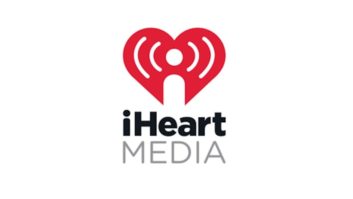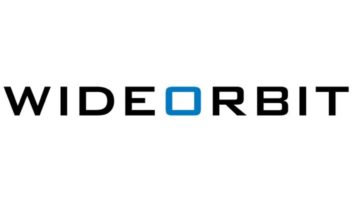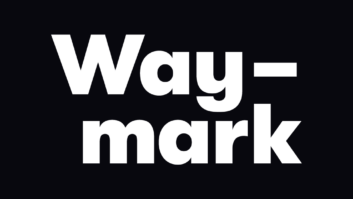Revenue from the Web
May 1, 2002 12:00 PM, By Stephanie P. Snyder
While creating a station website is a simple proposition, making a successful website, one that extends the station’s goals and makes money is a bit more challenging. Before considering the revenue solution that is right for a station, know the purpose of the website. Keith Swartz, senior consultant with Streaming Authority, warns, “if the goal is to increase listenership, and availability of programming and advertising, then [the Web] might be one marketing avenue to explore … to make ‘bunches of money’ and buy a pro sports team, this might not be the easiest way to approach the goal.” What would financial success look like for a particular station’s website? A starting goal could be to create a self-funding website.
Developing a website that enhances the station’s over-the-air presence and makes a small profit requires good planning, well-considered design and compelling content. Is the website an extension of the station’s sales and marketing strategy, or is it part of the programming side of the business? Either strategy can be used successfully to drive revenue, but without a plan, the proposition will falter.
The website for KJR, Seattle offers online CD sales.

Website traffic is essential to generate revenue. Listeners need to be visiting and spending time on the site. It is not enough to simply throw up a Web page with the station’s logo. Research the online market to deliver the content that the station’s target audience demands. A site that engages the listener and keeps his attention can form a deep bond between the listener and the station. This will help drive recurring traffic, as the listeners will return on a regular basis.
Visit a website as if you knew nothing about the station or the town. Is the site attractive, well-designed and easy to navigate? Most users cite information and entertainment as the reasons for visiting websites. For example, the user might visit a radio Web page for weather, news, concert calendars and events around town. Does the station’s Web presence deliver in these types of categories? Fresh and compelling content is crucial. The music reviews posted six months ago will get old and tired. Listeners will quickly abandon a website if they feel the content is inaccurate or stale.
Sales and marketing revenue
Once a site has traffic, the most common way to make money on the Web is through online advertising. These are graphical banners and click-through advertisements. Online ads can be value-add positions to existing over-the-air advertisers, or they can be sold to new advertisers that may have been unreachable before. Internet ads are generally less expensive than over-the-air spots, but a station can run more of them, more often, as advertisers are not limited by 30-second or 60-second time breaks. They can also be highly targeted.
Information gathering is a common way listeners use the Internet, so another way to integrate the station’s over-the-air and online presence is to have a page on the website allowing listeners to find out more about companies that sponsor station programs. Sometimes a listener may hear an ad while in the car and have no way to write down the telephone number or address of the advertiser. Let the listener go to the website to look up the information when it’s convenient. Some advertisers may offer a special discount or coupon that listeners can print out. For a small fee, this service can have great value to existing station ad clients.
If offering a streaming version of the station’s signal on the Web, in-stream advertising can double the amount of airtime available for sale. Some streaming hardware and service providers will allow users to lay special Internet-only spots into a webcast. Imagine the potential for the sales manager who can now sell each spot twice.
Less obvious ways to drive revenue are selling station merchandise, such as hats and t-shirts, or sponsorship of interactive features.
The KDBN, Dallas, site offers station merchandise from the Bone Gear T-shirt shop.

A further way to use a website to drive sales revenue is to sell the station’s database. The Web makes it possible to gather huge amounts of demographic data about listeners. This can be done by running online polls and questionnaires. Alternatively, by asking people to sign up for the website and become free members, the site can ask them a series of questions about their home and spending habits. Corporations can spend millions of dollars gathering this type of information through telephone and in-person surveys. For minimal cost, the station can gather and then use or sell this demographic data for clients and advertisers. Consult legal counsel to develop a privacy policy for the listener database.
Programming-focused revenue
Adding to the content and value of the website while driving revenue for the station creates a winning proposition for everyone. Programming-based revenue models can do both. Arbitron reports that 40 percent of Americans have bought things online, and one in five people make it a habit. A music station can partner with companies to provide online sales of CDs, cassettes or concert tickets. News and talk stations regularly interview authors; consider a partnership with a bookseller. In such a partnership, the station does not actually sell the items, but rather provides a storefront with links for users to click through to buy from the partner company. In return, the partner pays the station a small fee for every referral, or in some cases every sale.
Another way to drive programming-based revenue is subscription services. For a small monthly or annual fee, there may be website extras such as members-only chat rooms or access to special events. Consider having users subscribe to listen to a collection of MP3 files or the streaming radio signal. Nine million online radio listeners would be willing to pay a fee for online music services, according to Arbitron and Edison Media.
A Web presence can be self-sustaining and profitable. Don’t be limited by only thinking of the website as a place to put print ads for over-the-air advertisers; integrate existing station strategies into the online plan.
Snyder is an independent streaming media consultant based in Australia.












